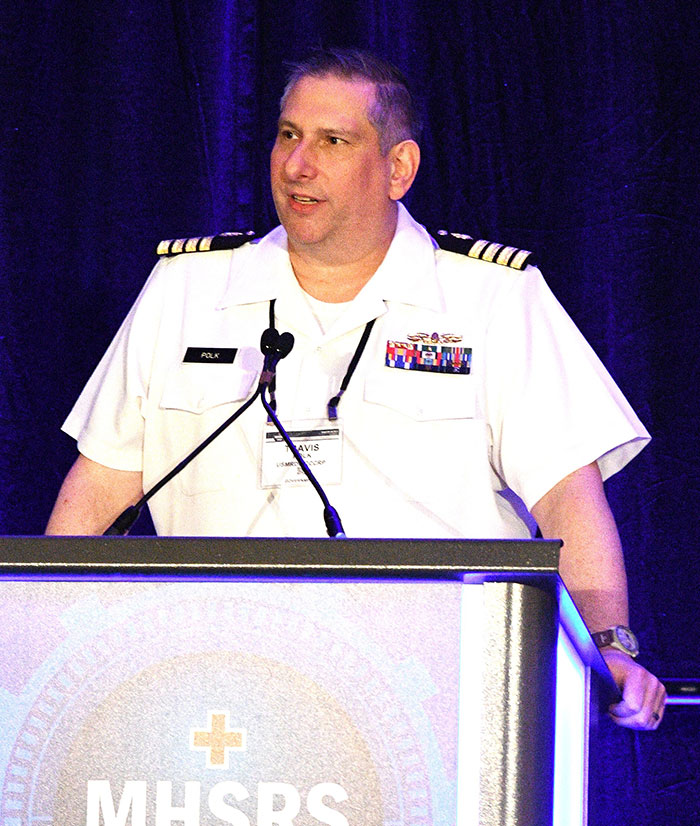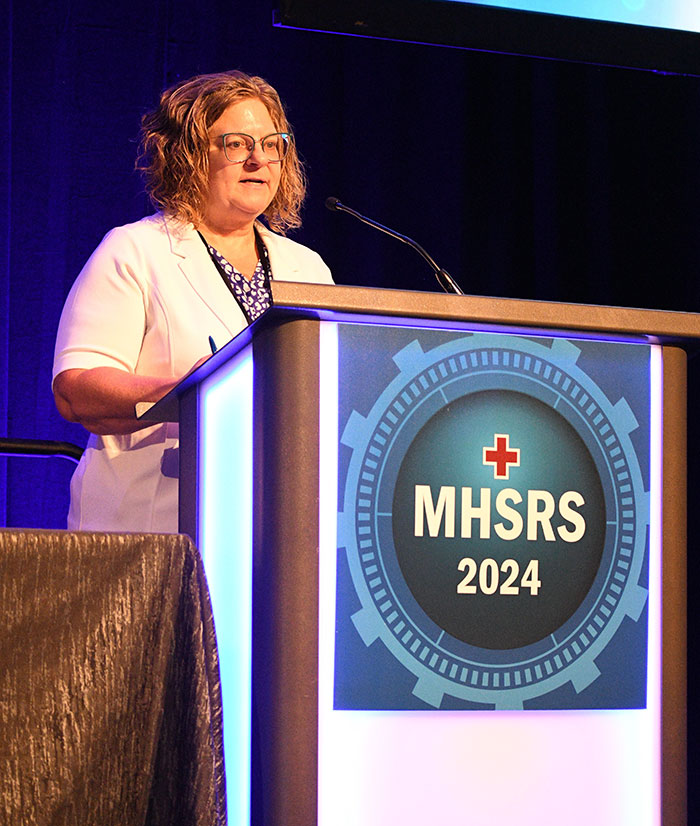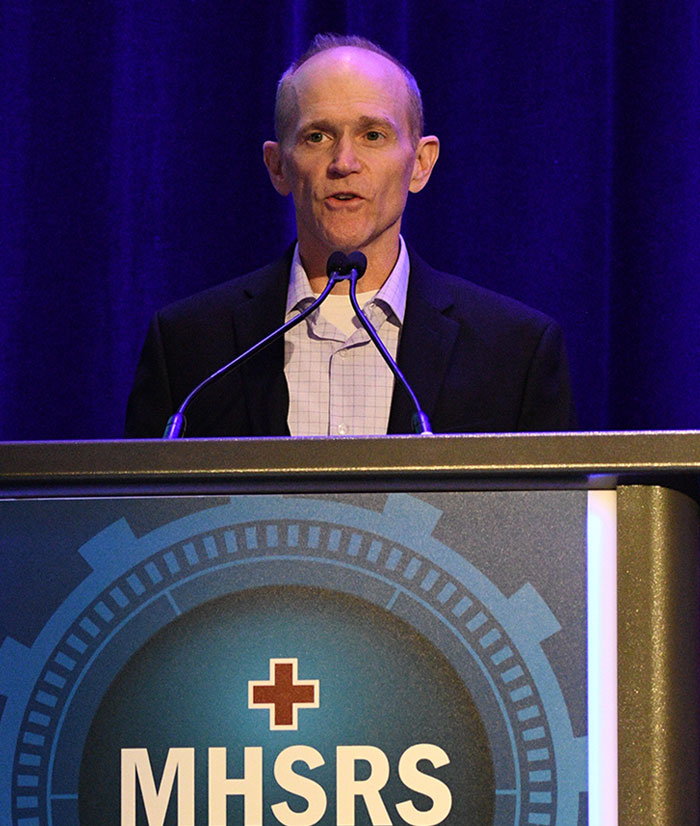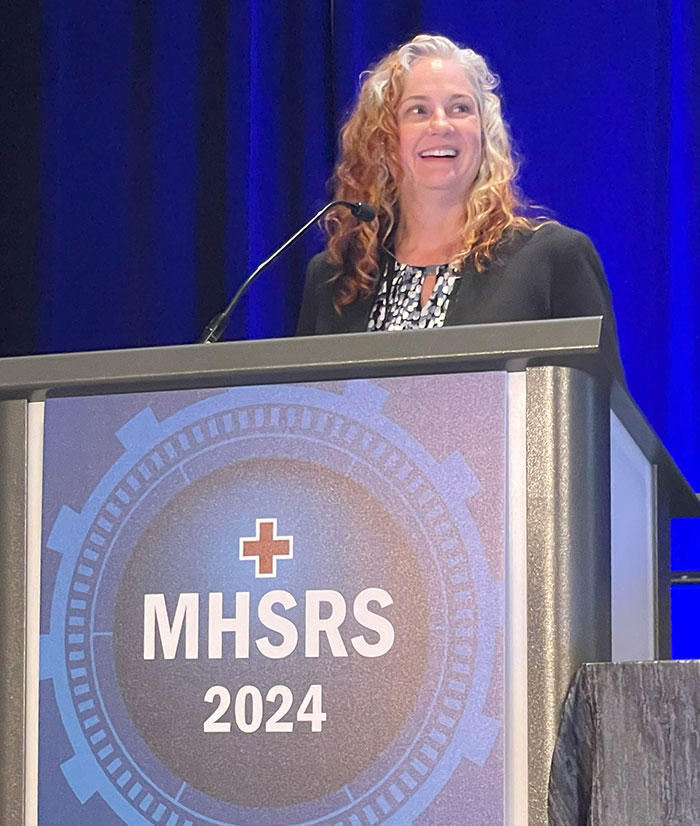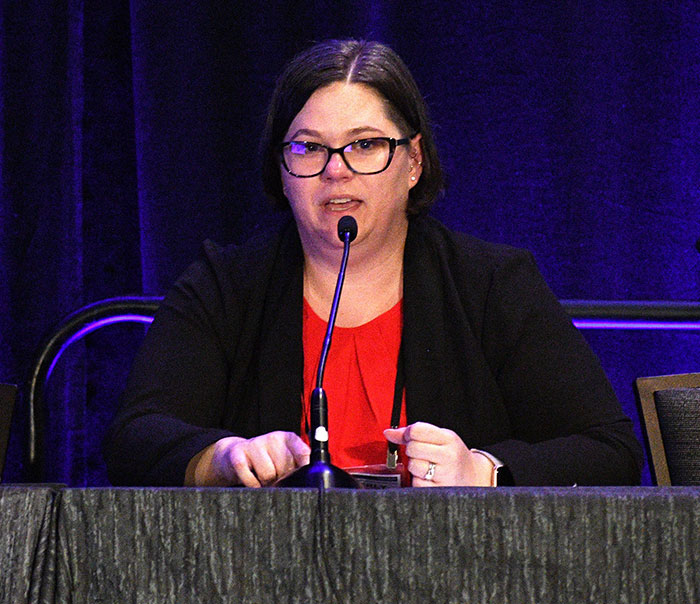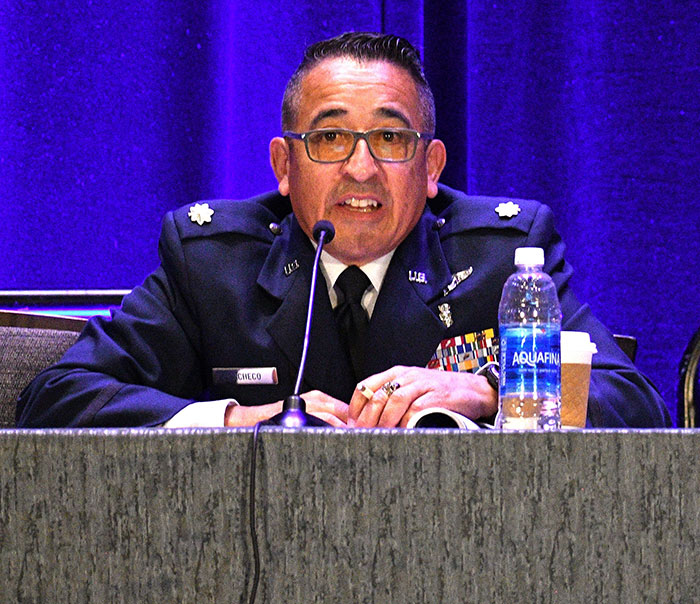CCCRP Moderates MHSRS Sessions to Support Warfighter Needs
The Military Health System Research Symposium, held from Aug. 26 to 29 in Kissimmee, Florida, brought together military health professionals, academic researchers, international partners and industry to discuss the latest advancements and challenges in military medicine. This year, the Combat Casualty Care Research Program played a role in the symposium by moderating several key sessions.
On Aug. 26, CCCRP Director Capt. Travis Polk and Portfolio Area Manager Dr. Kimberly Pope led a session titled "Lessons Learned from Current Conflicts in Ukraine and Israel." The session provided a platform for imparting critical insights into modern large scale combat operations. The personal experiences of current LSCOs shared during this session helped to highlight the importance of ongoing collaboration efforts between the DOD and Ukraine.
On Aug. 27, Portfolio Area Managers Dr. Anne McKeague and Dr. Bonnie Woffenden moderated a session titled "Severe Burn Injury: Strategies to Accelerate Casualty Functional Recovery." The session explored the latest advancements in burn care, emphasizing the need for lightweight treatment strategies. The presenters also shared lesser-known conditions resulting from burn injuries, along with their current treatment efforts.
Portfolio Area Mangers Dr. J.B. Phillips and Dr. Kasey Moritz led a session titled "From Theory to Practice: Transitioning Science and Technology Findings into Actionable Knowledge," which delved into the challenges of the medical innovation development process. Emphasizing the importance of organization and the use of colloquial language during dissemination, the speakers followed their own advice during the presentations to demonstrate the value of this approach.
Portfolio Area Manager, Dr. Jenifer Ojeda moderated "Advances in Regenerative Medicine from Point of Injury to Definitive Care and Beyond," during which speakers introduced new technologies that aim to support Warfighter recovery. Presenters focused on advances in bone, nerve and muscle regeneration, underlining the value of research in support of this later role of care.
Ending Tuesday's sessions, Portfolio Area Manager Mr. David Evans led the session titled "Protecting the Warfighter from Nuclear Threats: Acute Radiation Syndrome and Radiation Polytrauma," in which participants shared their discoveries in mimicking, detecting and analyzing radiation and combined injuries. With a focus on the potential for exposure – whether accidental or purposeful – speakers stressed the critical role of ongoing research and preparedness in this sector of combat casualty care.
On Aug. 28, Dr. Pope moderated "Advances in Life-Saving Interventions at Point of Injury and in Prolonged Care." The session focused on the current gaps within prolonged care, as well as on technological advancements to aid in the treatment and early detection of common Warfighter conditions. The presentations yielded a considerable number of questions from the military health care community and fostered a dynamic discussion with the audience.
On Aug. 29, Portfolio Area Managers Dr. Pope and Dr. George Jiang moderated a session titled "Clinical Studies to Advance Combat Casualty Care," during which presenters discussed innovative strategies and technologies within the development process, as well as strategies and technologies in need of advancement. This session highlighted the potential for collaboration between the military and civilian research communities.
Ending the four-day symposium, Portfolio Area Manager Lt. Col. Nelson Pacheco moderated a session titled "Challenges and Opportunities of High Volume, Prolonged Medical Mobility and Casualty Evacuation During Large Scale Combat Operations." Speakers focused on the impact of current en-route care practices on human performance, as well as innovations and devices to assist in the care of combat casualties.
Portfolio area managers from the CCCRP also served as judges during Tuesday and Wednesday's poster sessions, where exhibitors presented the details and findings of various medical studies.
MHSRS is the Department of Defense's primary scientific meeting focused on the unique medical needs of the Warfighter. This year's symposium, attended by more than 4,000 registered participants, saw an increase in attendance compared to last year, reflecting the growing interest and importance of military health among research communities. The collaboration and knowledge-sharing that occurred at this year's symposium will pave the way for shared advancements in medical science, benefiting both the military and civilian populations.
 An official website of the United States government
An official website of the United States government
 ) or https:// means you've safely connected to the .mil website. Share sensitive information only on official, secure websites.
) or https:// means you've safely connected to the .mil website. Share sensitive information only on official, secure websites.



